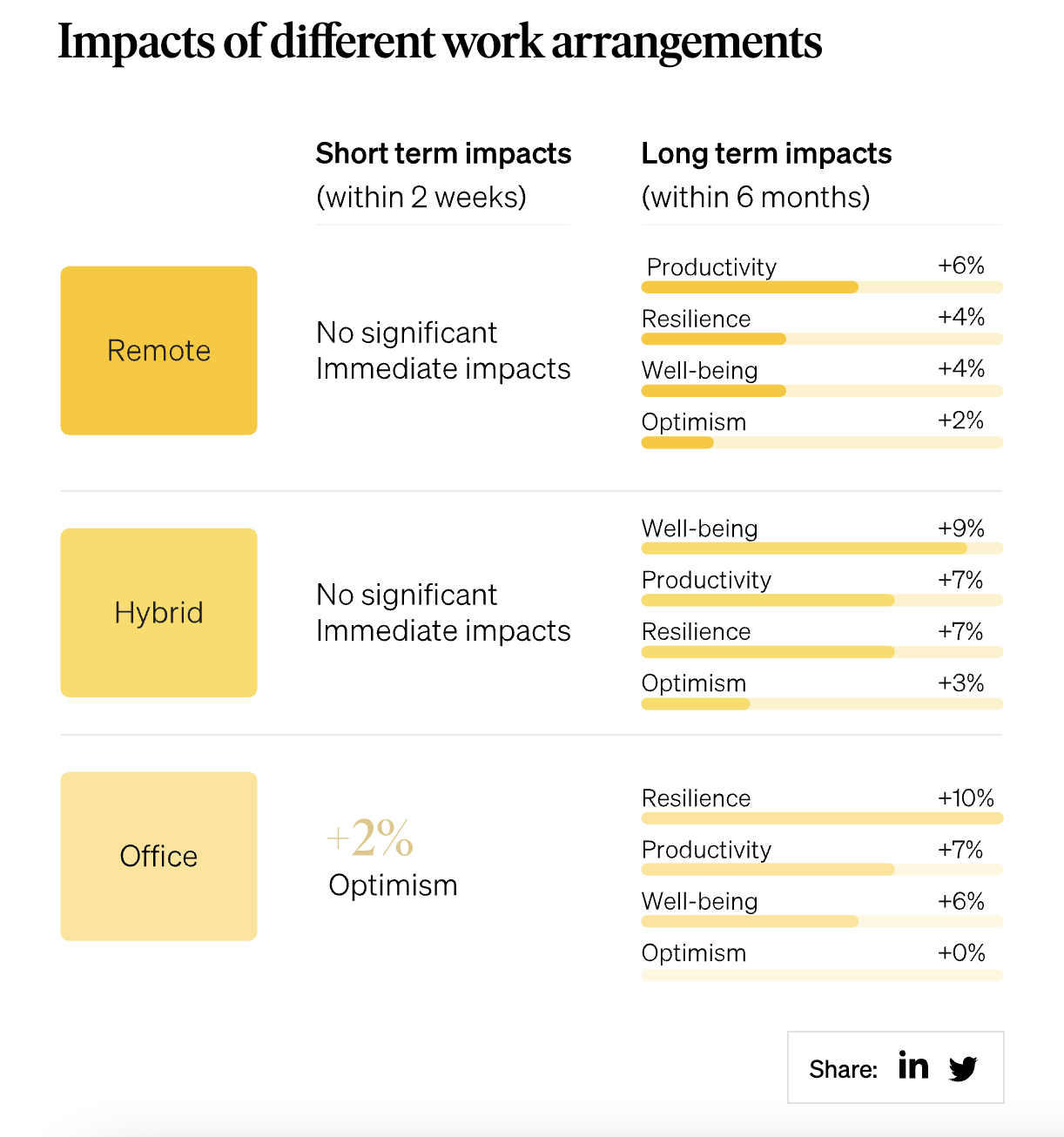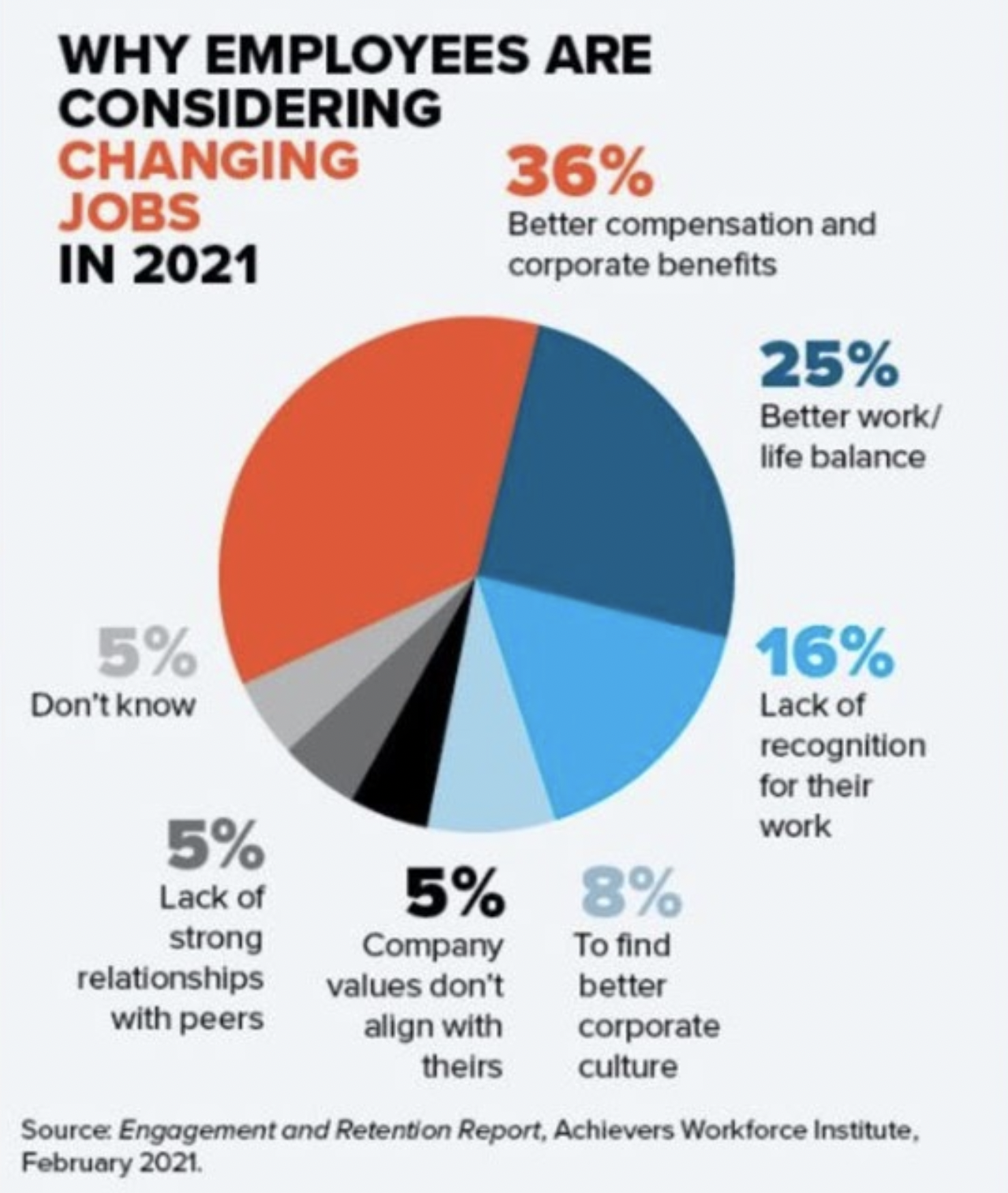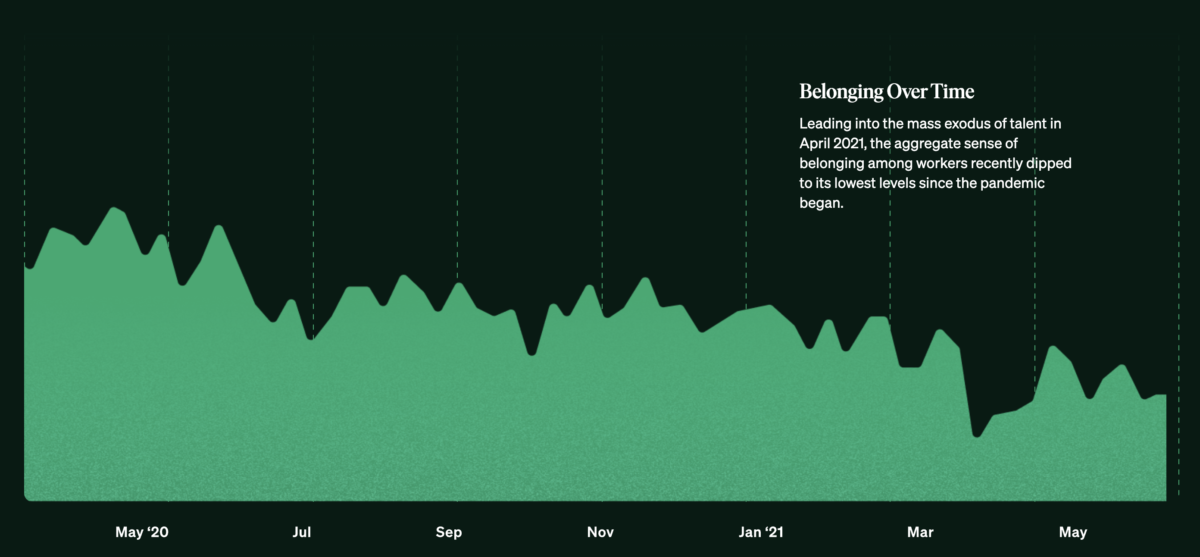Remote work is no universal good.
Many experienced, high-performing individual contributors thrive. For others, there are tradeoffs. Productivity might go up. Well-being may not — hence, talk of burnout. Office-first work cultures are a battle, and hybrid environments risk muddling the message.
“There’s a cost to this diversification of work arrangements, said Erin Eatough, a research scientist at virtual coaching platform BetterUp. “That cost comes in sense of community, sense of connection and belonging.”
“And, as employees and humans, we need to feel belonging.”
So argues a new report from the company, which has offices in Washington DC. The report is backed by research of more than 10,000 coaching sessions tracked by the BetterUp platform over the last year. Eatough recharacterizes many of the top reasons employees leave their roles — compensation; flexibility and values-alignment — as “a belonging tax” that has grown during the pandemic.
What is belonging? A sense that you’re in the right place. That your coworkers are peers. The kind of person you might have lunch with, or grab an after-work drink or take a walk with in a nearby park — all sorts of things many of us stopped doing for most of the last two years. No matter how many times you bring a goat onto a Zoom call, it isn’t quite the same.
That’s not to say remote work is a mistake. It’s just different.
Whatever work arrangement you select, there are strengths and weaknesses. All of them have their own challenges for developing belonging. That takes a new kind of inclusive leadership, argues the report.

Three highlights argue for growing belonging and therefore retention:
- Promote psychological safety for underrepresented groups — “Our research found that URMs [underrepresented minorities] are 1.6 times more likely to have low belonging than their peers in other groups, a leading indicator of intent to stay.”
- Provide more well-being support for women and parents — “During the pandemic, women tended to have statistically significantly lower well-being — by 3%. But when women feel supported by their leaders? They see a 17% boost in well-being, and parents experience a 28% boost in well-being.”
- Prioritize overall well-being for peak performance — “When we’re struggling, getting back to well-being is a top priority.”
According to BetterUp data, employees experienced a surge in belonging at the beginning of the pandemic (see chart at top). In the early days, we felt we were doing something important together. Belonging has languished since. Leaders may be focusing on productivity gains, while ignoring well-being, Eatough said. Ignore this loss of camaraderie at your peril.

Why do employees leave?
When surveyed earlier this year about leaving their companies, a third of employees cited compensation as their top reason; a quarter for flexibility and the rest for a mix of reasons like seeking recognition, aligning values and better company culture fit.
Nearly all of those reasons for leaving a company can be recharacterized as a question of belonging. We trade time for money, and if you feel you’re part of a team, doing work you like with reasonable flexibility and safety, that will count for a lot in terms of compensation.
“The opportunity cost for every hour we spend has risen for people.” she said. “What do I want to do with my time and my life?”
Sign up for the Culture Builder newsletter






